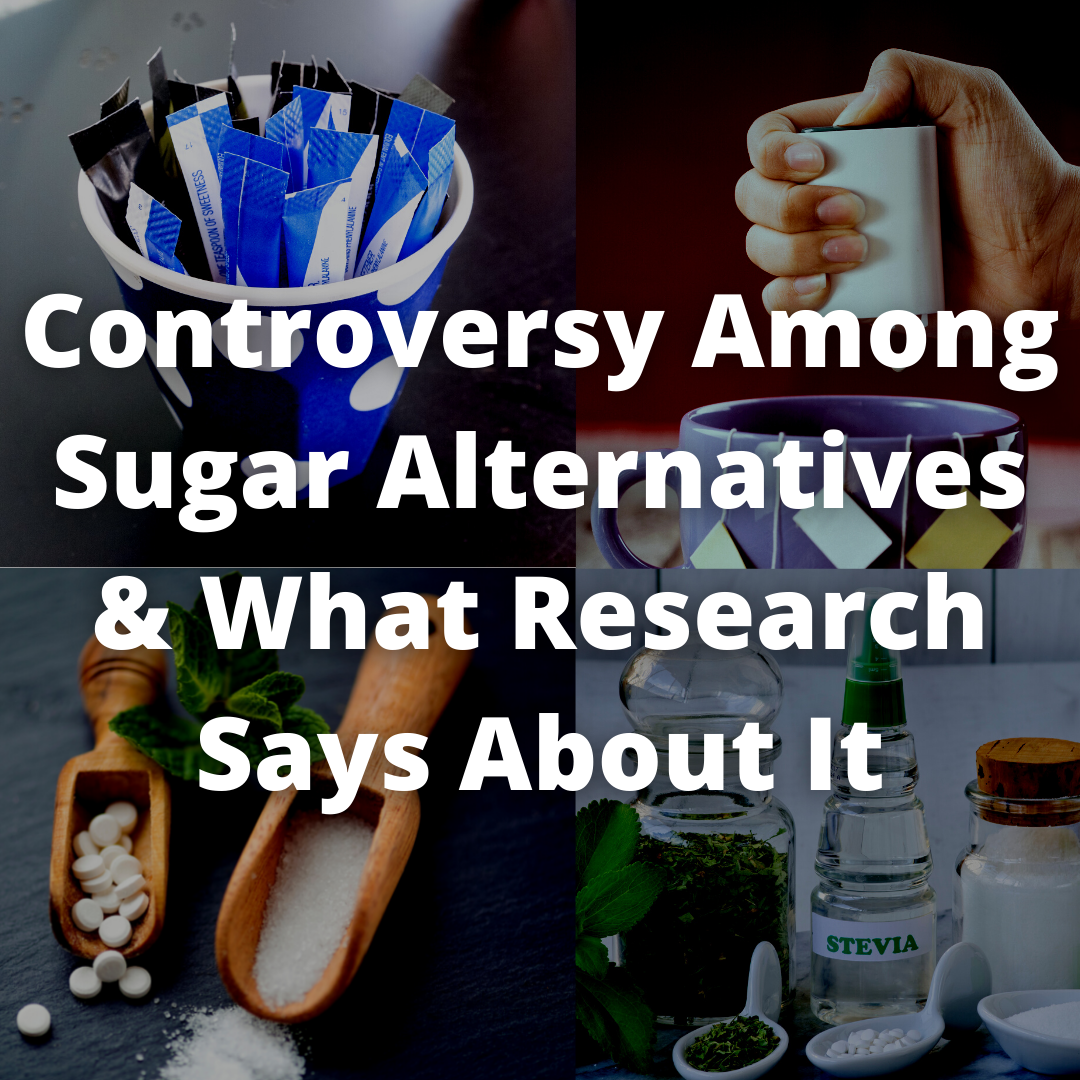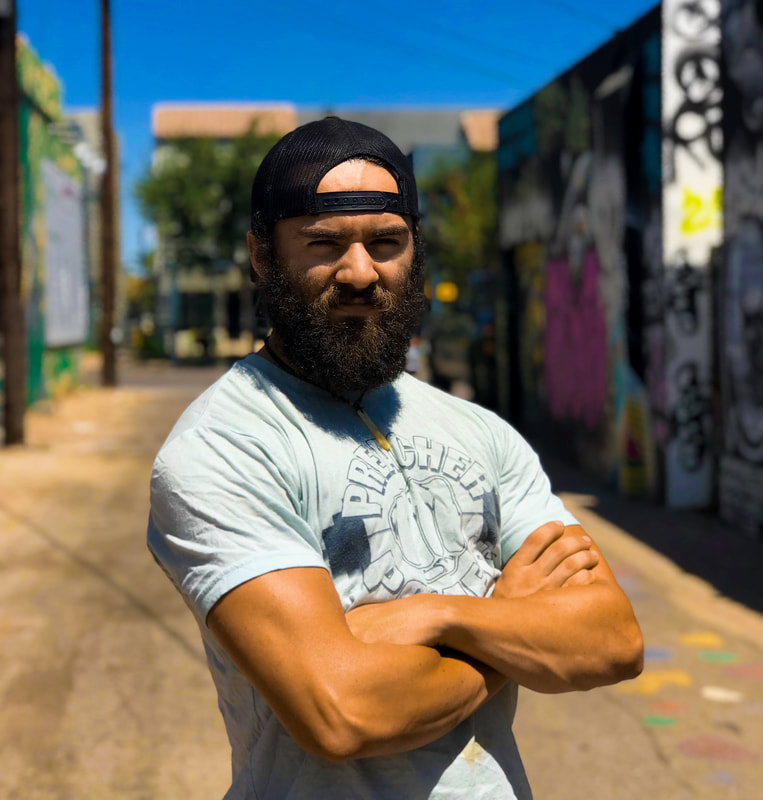 By: Matthew Smith, DACM, MSOM, Dipl.Ac., CPT ***Disclaimer: This article is not intended to be used as grounds to claim a cure of any disease. If you are thinking about using an herb, supplement, or therapy of any kind please first consult your primary care provider *** Controversial Topic: Sugar Alternatives Are Healthy Alternatives Over the last decade there has been an extreme spike in the popularity of sugar alternatives making claims that they are diet, low calorie, longer lasting flavor, sweeter flavor, healthier alternatives for consumption in food. However there is a huge grey area when it comes to alternative sweeteners as the market has blown up with just about everything else to avoid using as much sugar. While sugar may be a classic and utilized sweetener, sweeteners like aspartame, sucralose, stevia, erythritol, xylitol, stevia, monk fruit extract are popping up everywhere in the market being advertised as healthier alternatives. However, what is good, what is bad and what are healthy limits to consume, if any, of these substances? Who are the key players/influencers/influenced or what are the major concerns of the topic at hand? Healthcare practitioners, trainers, coaches, consumers, athletes, anyone that consumes anything sweet! The major concern is that there is a lack of concrete evidence matching claims that alternative sweeteners are in fact healthier alternatives in food products. The research is lacking and not easily available to the public while certain research is potentially being influenced by corporations to sway the population. Who is for sweetener alternatives and who is against them? Surprisingly there was not a lot of research that was either for or against the use of alternative sweeteners. However what I found was rather interesting with some potential flaws. The question we are trying to answer is whether or not alternative sweeteners are beneficial in comparison to something like sugar. Since they tend to be advertised many times as “healthy” rather than neutral, this can in fact be very misleading. The first of two sources that I came across which are in support of greater research and conservative sweetener consumption is the article that discusses Intense Sweeteners and Taste Receptors and how the intense sweeteners play a role in gastrointestinal dysbiosis. Another article that also has conservative information regarding the use of sweeteners was from Tufts University titled, The Facts About Natural Sugar Substitutes. This was actually a newsletter put out by Tufts University earlier this year that talked about natural sweetener alternatives which included pros, cons and needs for further research. The articles that were “inconclusive” or made statements that alternative sweeteners were safe included an article researching Metabolic syndrome, non-alcoholic fatty liver disease and the gut microbiome. Now while this article is in favor of researching the potential unhealthy correlations between sweeteners, it points out something more important. It points out how necessary it is for further research. This study showed that due to lack of long term study, there is no way to know for sure the potential outcomes of negative side effects of some sweeteners. I still placed this in the non-supporting research however because it shows the bigger issue at hand and the study itself was not able to show that alternative sweeteners are safe or effective for longer term health. The last article, which I found to be very interesting was titled, The Effects of Non-Nutritive Artificial Sweeteners, Aspartame and Sucralose, on the Gut Microbiome in Healthy Adults Secondary Outcomes of a Randomized Double Blinded Crossover Clinical Trial. The research concluded that “aspartame and sucralose did not cause measurable changes in the gut microbiota or SCFAs after 14 days of a realistic daily intake in healthy participants” (Ahmad, S. Y., et al, 2020). Here is where it gets interesting because substances like sucralose and aspartame have been in question and rather under fire with potential links to actual poisoning potential and creating dysbiosis. As I read further into the article I noticed this research was sponsored by PepsiCo. It should be noted that PepsiCo. uses these sweeteners in their products. It would therefore reflect poorly on the company if these sweeteners were found to be “unsafe” for consumption. How can we see this from a Traditional Chinese Medicine (TCM) Theory standpoint? Coming from a TCM perspective we can look at this from a liver, spleen and stomach perspective in relation to symptomatology and herbal study. What we know is that the spleen and stomach tend to be tonified and warmed from too much sweetness and flavor. This does not necessarily mean sugar as our focus is more so on flavor. Therefore even if something is a sugar alcohol, based on tcm herbology, the sweet flavor can still overload the spleen and stomach systems with excess "dampness." Excess dampness hurts the spleen and stomach function and thus leads to poor digestion and build up of excess body fat. When there is more fat this can lead to more heat and damp heat as well as time goes on. This dampness as a result can later become damp heat which can accumulate and become an issue long term. This could lead to some ugly health outcomes like obesity, insulin resistance, high blood pressure, and cholesterol imbalances if these sweeteners could simply be linked to throwing off aspects of the gut microbiome. How has this become a controversial issue and is there a clear path in the research that dispels a sense of controversy around the topic? This seems to be a controversial issue because there is not a clear cut answer what the effects of these sweeteners really do to the body. Based on past experiences I have seen that the more artificial non-nutritive sweeteners have been linked to many issues including spikes in insulin which can be dangerous. I have personally seen the use of aspartame and sucralose in many of the products that my powerlifting teammates, coaching clients and all over the web. They think these products are good for them because they have less than 1 gram of sugar per serving but in reality there is the potential for them completely throwing off their gut health which is imperative for optimal health and performance. The trouble is, finding the evidence is not easy due to the obvious conflicts of interest with these being in so many products. Natural sweeteners may be a better alternative but research is also lacking in quality, and long term effects. It is also important to note this is a broad topic that could become more specific. Some alternative sweeteners do have the potential to be helpful, however my larger skepticism has to do with aspartame, sucralose and stevia that has been tampered with in a laboratory. References 1. Ahmad, S. Y., Friel, J., & Mackay, D. (2020). The Effects of Non-Nutritive Artificial Sweeteners, Aspartame and Sucralose, on the Gut Microbiome in Health Adults: Secondary Outcomes of a Randomized Double Blinded Crossover Clinical Trial. 2. Green, C. H., & Syn, W.-K. (2019, May 11). Non-nutritive sweeteners and their association with the metabolic syndrome and non-alcoholic fatty liver disease: a review of the literature. Germany. https://eds-a-ebscohost-com.pacificcollege.idm.oclc.org/eds/pdfviewer/pdfviewer?vid=4&sid=2affcc67-3a58-4012-a94c-9a64f59f4f9e%40sessionmgr4008. 3. Tufts University. (2021, March). The Facts About Natural Sugar Substitutes. Boston, MA. https://eds-b-ebscohost-com.pacificcollege.idm.oclc.org/eds/pdfviewer/pdfviewer?vid=1&sid=c1dceeae-31fc-4fda-8fac-38bc10ed02b0%40sessionmgr103. 4. Turner, A., Veysey, M., Keely, S., Scarlett, C. J., Lucock, M., & Beckett, E. L. (2020, June 8). Intense Sweeteners, Taste Receptors and the Gut Microbiome: A Metabolic Health Perspective. https://eds-b-ebscohost-com.pacificcollege.idm.oclc.org/eds/pdfviewer/pdfviewer?vid=2&sid=28438691-71df-45a4-8eca-6f991e0862d8%40sessionmgr102.  Health & Human Performance Coach, Doctor of Acupuncture and Chinese Medicine, professor, and competitive strength athlete, Matthew Sabey Smith DACM, MSOM, Dipl.Ac,, CPT is the owner and founder of Strength Smith Training Systems LLC. With an extensive background in integrative holistic health, training and coaching, Dr. Matt uses his knowledge to help individuals improve their training, boost their recovery and maintain optimal balance as they chase their athletic, fitness and health endeavors.
2 Comments
Elena
4/14/2022 10:20:28 am
Thank you for this post! I enjoy all research and information you provide, not just for this article but for all you have shared. The connection to TCM is very smooth and understandable to any person so it is easy to share.
Reply
Agreed Not enough research has been done to understand the short and most importantly long term adverse effects these products can have on you. It seems there is a new "natural sweetener" every 6 months these days. In reality they are all processed and "derived" from a natural source and some are made in the lab(aspartame). Keep up the good work.
Reply
Leave a Reply. |
Details
Topics
All
Archives
June 2022
Author:Doctor of Acupuncture and Chinese Medicine, Coach, Professor, and competitive strength athlete, Matthew Sabey Smith DACM, MSOM, LAc., Dipl.Ac,, CPT is the owner and founder of Strength Smith Training Systems LLC. With an extensive background in integrative holistic health, training and coaching, Dr. Matt uses his knowledge to help individuals improve their training, boost their recovery and maintain optimal balance as they chase their athletic, fitness and health endeavors. |


 RSS Feed
RSS Feed